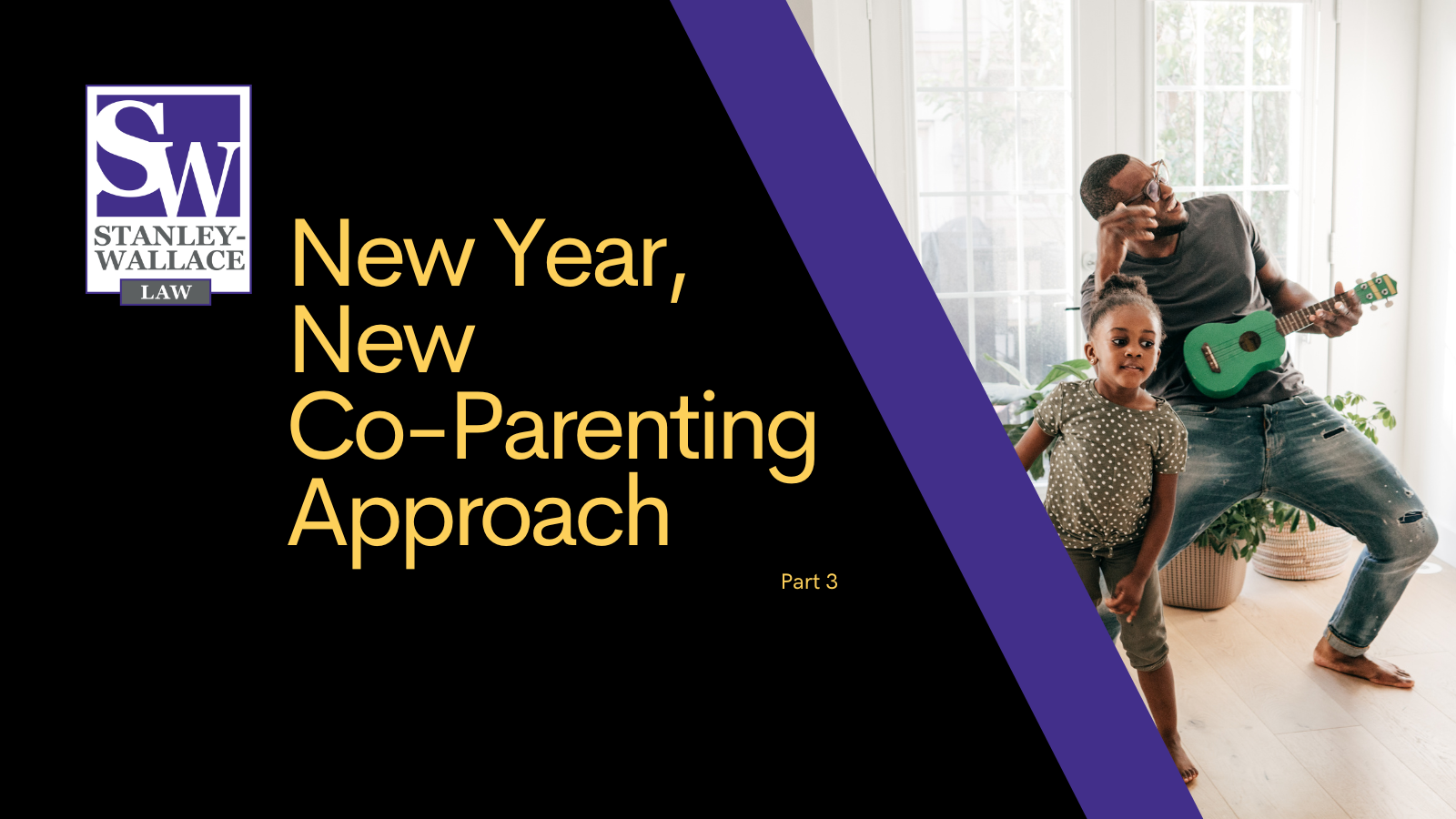Part 3 of 3
In our last installment of New Year, New Co-Parenting Approach, we explore what I believe to be one of the most important parts of a custody judgment – the Co-Parenting Guidelines. If you have a custody judgment, it is likely you have Co-Parenting Guidelines. If you don’t have Co-Parenting Guidelines in a custody judgment OR you don’t have a custody judgment, if you ever seek to establish or modify a custody judgment, please advocate for these guidelines, Although some people think them to be just “fluff” in judgment, they couldn’t be more wrong. I have heard the Co-Parenting Guidelines referred to as the “Play-Nice Language”. They are orders that are meant to ensure that the parties communicate regarding the children while insulating the children from adult conversations and negativity. Following these Co-Parenting Guidelines is one of the most important things you can do for your children while going through a divorce. There are numerous Co-Parenting Guidelines, but not all apply to every case, and they may be different depending on which court you find yourself in; however, let’s explore a few:
1. Act only in a manner – that reflects positively toward each other. Neither parent shall say or do anything in the presence or hearing of the child that would in any way diminish the child’s love or affection for the other parent and shall not allow others to do so. Children have the right to a life that is free of negative comments and behavior by one parent to the other, that is, a conflict-free environment.
2. Neither parent shall post any negative comments on any form of social media regarding the other parent, or Court proceedings, nor allow anyone acting on their behalf to do so.
3. To share information with each other about the child in a timely and cooperative manner. This information shall include but is not limited to medical, educational, social, psychological, and religious aspects of the child’s life. Parents shall not communicate through them.
4. Parents shall exchange information with each other about all of their child’s activities and schedules: school, sports, social, etc., to insure their proper and consistent attendance and to encourage and facilitate each parent’s involvement and attendance when appropriate. This pertains to the child’s homework, school projects, appointments, and activities that need attention when the child is with the other parent.
5) Each parent shall inform the other as soon as possible of all school, sporting, and other special activity notices and cooperate in the child’s consistent attendance at such events. Neither parent shall schedule activities during the other parent’s scheduled parenting time without the other parent’s prior agreement, except those that the child participates in on an expected and required basis, excluding vacation time.
In a joint custody arrangement, communication is the duty of both parents. These Co-Parenting Guidelines outline specifically what items the parties are to discuss/disclose and outline guidelines for scheduling. Children’s lives are busy but, in a joint custody situation, both parents should have all of the information necessary should they want to be involved. While it seems overwhelming, technology is helpful here. There are new apps and websites where co-parents can share information via messaging, calendars, and uploads to make the transition and communication easier.
6) Communication concerning their child and/or any marital and court-related issues shall occur at agreed-upon appropriate times and places when the child is not present or within hearing range. It shall not occur at times of exchange or during telephone visits with the child.
7) All communication regarding the child shall be between the parents. The parents will not use the a as a messenger to convey information to the other parent, obtain information about the other parent, or set up schedule changes.
These Co-Parenting Guidelines focus on keeping the children out of adult business. It puts the child in the middle and makes them aware of “adult business” for which they are not responsible.
If these orders are in your custody judgment, and they are violated, the party violating them can be held in contempt of court just as easily as if they had violated another provision of your judgment. In fact, these are the contempt motions we find ourselves bringing more often than not. If these orders are not in your custody judgment, a party cannot be held in contempt of court for violating them; however, you as a co-parent might do well to find them instructive. Following these Co-Parenting Guidelines (if you have a joint custody order) not only may help your co-parenting relationship with your co-parent but may improve your child’s life during this transition time.


